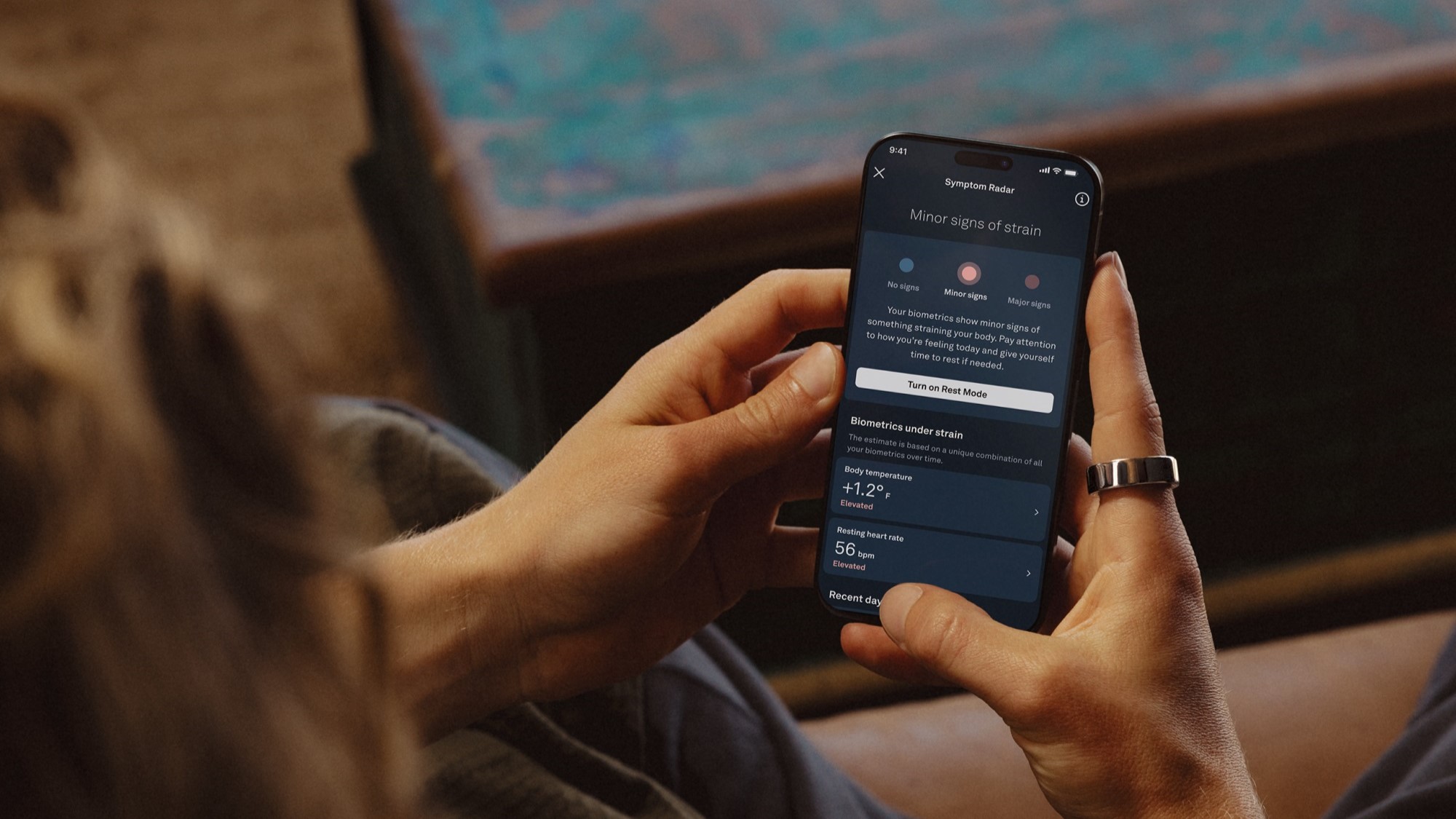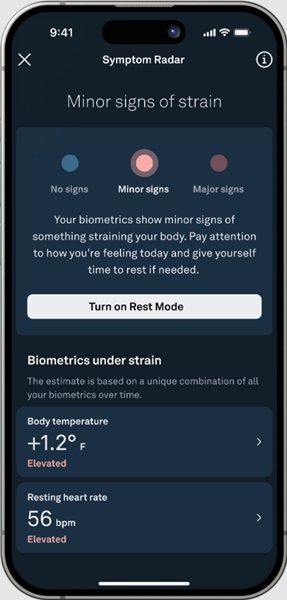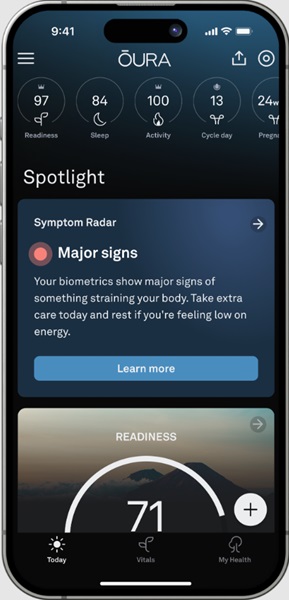Oura's Symptom Radar is an early warning system for signs of sickness
These alerts could help encourage you to take a much-needed rest day.

(Update: 12/5 3:50 pm ET): Updated the date of availability for Symptom Radar in the Oura app.
What you need to know
- Oura highlighted its new Symptom Radar, which will encourage you to take rest days based on your biometric changes.
- Symptom Radar features three levels of potential signs of strain with the highest being "Major Risk," meaning users should take a rest day.
- Oura states this feature could help users get ahead of potential signs of sickness and take time to rest their bodies.
- This is rolling out to Oura Ring 4 and Gen 3 members in its app on December 11.
Oura is detailing a new feature for two of its smart rings that could help you get ahead of those sick days.
The company highlighted the coming arrival of "Symptom Radar" for the Oura Ring 4 and Gen 3 members. The post states that the feature works by monitoring "changes in your data." According to Oura, the data it sifts through could indicate that something is "straining" your body, like sickness. Wearing your Oura ring will give the app the information it needs to function, such as your skin temperature, average temperature "trends," respiratory rate, resting heart rate, heart rate variability, and inactive time.
The post states users will find their Symptom Radar in the Oura app by navigating to the Today tab. Tapping its highlight card will produce its full page. Moreover, the radar can be accessed more regularly through the hamburger menu in the top left of the Today tab.
Symptom Radar displays signs of strain in three levels, with the first being "No Signs." Oura says this means that your ring has not detected an "obvious sign" in your biometrics that points toward bodily stress. "Minor Signs" means that there is something there or "small signs" that could indicate approaching sickness.
Lastly, "Major Signs" means that in your biometrics, your ring has detected "stronger signs" that something is working against your body. Oura says that "Biometrics under strain" section will explain which parts of your data show the most signs of stress. If there is a significant change in your trends, this could indicate sickness/stress.


Oura adds that it looks at multiple pieces of data to see if there's a "deviation in combination" of everything it's collected. If there are major signs or, perhaps, minimal ones, Oura will suggest taking a rest day.
Be an expert in 5 minutes
Get the latest news from Android Central, your trusted companion in the world of Android
The press release states that users enabling Rest Mode will see their activity scores paused alongside any goals and activity contributors. However, Symptom Radar will continue to work in the background whilst Rest Mode is active.
Oura offered a few advisories, stating Symptom Radar may not work with "pre-existing medical conditions." Additionally, pregnancy may impact "biometric baselines" and affect the accuracy of the feature. Oura adds that this radar can be turned off if you are pregnant. What's more, the company reiterates that its rings are not a "medical device." It seems wise to take what Symptom Radar is telling you and see a medical professional if you feel concerned.
Oura states Symptom Radar is rolling out to all members with a Ring 4 or Gen 3 on December 11 in the app.
In a separate post, Oura detailed the long development history of its Symptom Radar. The science and process of it stretches back to March 2020. However, Oura's April launch of its Labs experience helped further its progress. During its early testing, the company stated users found it difficult to know if Symptom Radar's information had been updated. As a result, Oura states it provides a historical graph so users can see the different updates the feature has made.
More importantly, the post says testers reported increased interest in seeing which biometric changes "indicated risk." Oura states users will now see markers for a changed piece of data and "why the risk increased."
Seeing as the colder months are here, Symptom Radar may help users as we enter flu season.

Nickolas is always excited about tech and getting his hands on it. Writing for him can vary from delivering the latest tech story to scribbling in his journal. When Nickolas isn't hitting a story, he's often grinding away at a game or chilling with a book in his hand.
You must confirm your public display name before commenting
Please logout and then login again, you will then be prompted to enter your display name.
